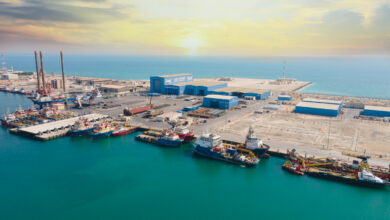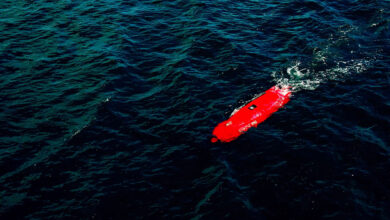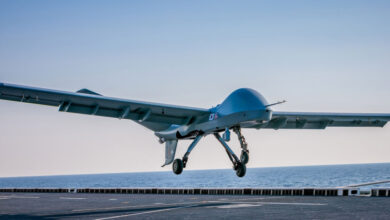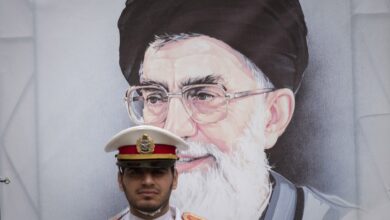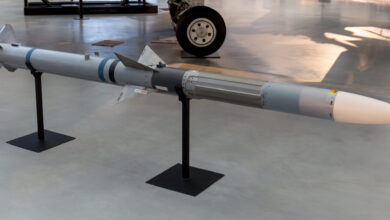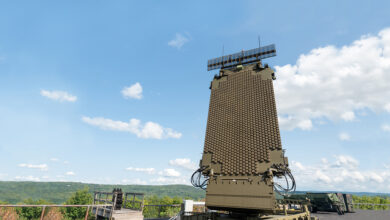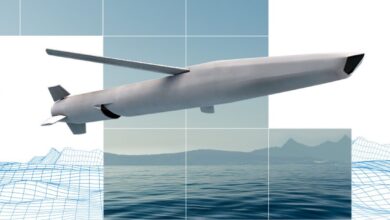
Furious over the targeted killing of Iranian Maj. Gen. Qassem Soleimani by the US military in Bagdad, Iranian Supreme Leader Ayatollah Khamenei demanded in January that “the Americans’ corruption-stirring presence should come to an end” in Iraq. As it happens, Christmas came early for Khamenei, at least in part.
Gen. Frank McKenzie, commander of US Central Command, announced on September 9 a drawdown of US troops in Iraq from 5,200 to 3,000. This statement comes as President Donald Trump attempts to bolster his November reelection by making good on previous campaign promises to withdraw the military from foreign entanglements.
Ayatollah Khamenei stands to secure a public relations victory from the drawdown. It not only reinforces the oft-used narrative that Iran is impervious to American imperialism but also allows Iranian leadership to flaunt its prowess in asymmetrical tactics and resistance politics.
Conversely, though, a US force reduction in Iraq undermines the efficacy of Khamenei’s domestically-driven “Crusader” propaganda.
Iran-Backed Militias in Iraq
The drawdown will not only alleviate pressure on nearby Iranian proxy groups; it will fuel the Islamic Revolutionary Guards Corps’ (IRGC) geopolitical ambitions throughout the Middle East. With fewer hostiles on its doorstep, the IRCG will naturally seek to expand not only its strategic depth throughout the region but also its zealous revolutionary ideals.
The move is also a political boon for Iraqi Prime Minister Mustafa Al-Kadhimi, who seeks to unify a country fractured by foreign interference and sectarian strife.
While the drawdown lends to Al-Kadhimi’s image as a leader unshackled by American interests, it also strengthens his hand in restoring the sovereignty of Iraqi government institutions.
But the American military drawdown poses a serious question: should the Popular Mobilization Forces (PMF), an umbrella of Iran-backed Shia militias, respond in kind? The Islamic State’s demise in Iraq, coupled with the US drawdown, brings into question the obsolescence of PMFs.
Iraqi Shiite militia Kataib Hezbollah: "Neither Trump nor anyone else can uproot the foundation of the Popular Mobilization Forces, the Islamic Resistance, Kataib Hezbollah."
— Evan Kohlmann (@IntelTweet) September 11, 2020
Upon being sworn into office on May 6, Al-Kadhimi warned, “Iraq will not be a ground for settling accounts and launching attacks on any neighboring or friendly country.” And he made good on this promise when, on June 25, Iraqi security forces raided a base of PMF militia Kataib Hezbollah, detaining 14 members. The move, which challenged Iranian infringement on Iraqi sovereignty, sought to thwart an attack on American military assets nearby.
Sectarian Strife Between Sunni and Shia
To be fair, the American military presence in Iraq has similarly undermined Iraqi sovereignty, and it has been responsible for massive collateral damage among Iraqi civilians. However, this hardly excuses the bad behavior of PMFs in Iraq. Despite their technical status as a branch of the Iraqi military, the continued presence of Iranian-backed militia groups and proxies operating under the PMF constitute a growing threat to not only the sovereignty of the Iraqi government but the safety of the Iraqi people.
According to a January 2016 Human Rights Watch report, in 2016, the Iranian-backed Badr Brigades and the League of Righteous militias routinely targeted Sunni civilians in the Muqdadiya, Diyala province areas where Islamic State was then active, deliberately killing, looting, and destroying property.

Atrocities perpetrated by PMFs also occurred in Anbar province in June 2016. According to reports corroborated by multiple witnesses, Shia militias oversaw the still unresolved abductions of over 700 Sunni men and boys and executed 66 males in addition to abusing over 1,500 others in the Fallujah area.
In the last year, the deaths of dozens of Iraqi Shia protesters, the assassination of Iraqi security analyst Hisham al-Hashemi, an al-Kadhimi advisor and renowned PMF critic, and multiple attacks on US military bases and the American embassy in Iraq were all widely attributed to Iran and its proxies.
These acts have increasingly exacerbated sectarian strife between Sunni and Shia, and as a result, Iranian soft power in Iraq is on the wane.
Inconvenient Fact for Tehran
Iran’s regional hegemonic aspirations have been met with stiff political and military resistance from Sunni-majority states in addition to extremist Salafist groups such as Al-Qaeda and Islamic State.
Its destabilizing actions across the greater Middle East have galvanized regional alignment against it, and in Iraq, exposed its hypocritical insistence on decrying the continued deployment of American forces while actively supporting its own unchecked militias.
The imminent drawdown of US military forces in Iraq is an inconvenient fact Tehran must come to grips with. Ayatollah Khamenei would do best to heed the old adage that “you can’t have your cake and eat it too.”
 Andrew Leonard is a freelance writer covering foreign policy and international politics. He previously worked as a sportswriter and also served as a special interests columnist while in college.
Andrew Leonard is a freelance writer covering foreign policy and international politics. He previously worked as a sportswriter and also served as a special interests columnist while in college.
Disclaimer: The views and opinions expressed here are those of the author and do not necessarily reflect the editorial position of The Defense Post.
The Defense Post aims to publish a wide range of high-quality opinion and analysis from a diverse array of people – do you want to send us yours? Click here to submit an op-ed.


